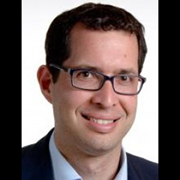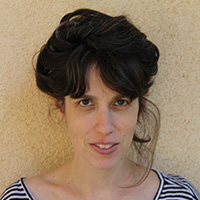TIL Conference: Third Party Litigation Funding: The Past, The Present and The Future
TIL conference June 2023, Academic Biography
| Academic Orginizers and presenters: | |
|
Prof. Ronen Avraham. Director of the Cegla Center for Interdisciplinary Research of the Law, The Buchmann Faculry of Law, Tel Aviv University |
Ronen Avraham is a professor of law at Tel Aviv University Faculty of Law. He came to Tel Aviv from the University of Texas at Austin. Before then, he was an Associate Professor of Law at Northwestern University in Chicago. Professor Avraham obtained his LL.M. and J.S.D. from Michigan Law School after receiving his LL.B. and MBA, Magna Cum Laude, from Bar Ilan University (Israel). Professor Avraham has published primarily in referee journal, such as Journal of Law, Economics and Organization, American Law and Economics Review, Journal of Legal Studies, as well as in top law reviews. Professor Avraham is the author the Dataset of State Law Reforms, currently in its 5th edition, which is an important research tool in the study of tort reform in the United States. Professor Avraham teaches Torts, Insurance, and Economic Analysis of Private and Public law. Professor Avraham's primary research interests are in economic analysis of torts and healthcare law and the intersection of liability reform and healthcare reform. In addition he writes about contract theory and theories of justice. Currently he work on third party litigation funding, torts and insurance. |
|
Prof. Tom Baker. William Maul Measey Professor, University of Pennsylvania Carey Law School |
Tom Baker is a highly regarded insurance expert, a leading scholar of insurance law and policy, and a devoted law teacher. His research explores insurance law, institutions, and markets using methods from history, economics, psychology, and sociology. His many books, articles, and reports address topics such as the impact of insurance on personal injury and securities litigation, health insurance reform, insurance underwriting and claims management, the historical development of insurance institutions, insurance company restructuring, and many aspects of insurance coverage. Recent articles include “Where’s the Insurance in Mass Torts?,” which explores the simultaneous decline of liability insurance and rise of third party litigation in mass torts, and “Uncertainty > Risk: Lessons for Legal Thought From the Insurance Runoff Market,” which argues for understanding insurance markets as centrally about managing uncertainty, not predictable risks. Current research topics include cyber liability and insurance, secondary insurance markets, legal finance, and the empirical study of insurance litigation. Baker is the Reporter for the American Law Institute’s Restatement of the Law Liability Insurance and a co-founder of Picwell, a health data analytics company that provides advanced decision support tools to health insurance exchanges, insurers, and employers. Before joining the Law School faculty in 2008, Baker served for 11 years as the inaugural Connecticut Mutual Professor and Director of the Insurance Law Center at the University of Connecticut. After graduating from Harvard Law, Baker clerked for the Honorable Juan R. Torruella of the U.S. Court of Appeals for the First Circuit, practiced with the law firm of Covington & Burling, served as Associate Counsel to the Independent Counsel Iran/Contra, and entered law teaching as an associate professor at University of Miami Law. |
|
Prof. Joanna Shepherd. Emory University School of Law |
Joanna Shepherd is the Thomas Simmons Professor of Law and Vice Dean at Emory University School of Law. Professor Shepherd teaches Analytical Methods for Lawyers, Law and Economics, Torts, and Judicial Behavior. Before joining Emory, Professor Shepherd was an assistant professor of Economics at Clemson University and worked at the Federal Reserve Bank of Atlanta. In addition to her position at the law school, she currently serves as an adjunct professor in the Emory Department of Economics. Much of Professor Shepherd's research focuses on topics in law and economics, especially on empirical analyses of legal changes and legal institutions. Her recent research has empirically examined issues related to the healthcare industry, tort reform, employment law, litigation practice, and judicial behavior. She has published broadly in law reviews, legal journals and economics journals and is the author of three books. Recent publications have appeared in the Stanford Law Review, Michigan Law Review,Vanderbilt Law Review, Southern California Law Review, New York University Law Review, Duke Law Journal, UCLA Law Review, The Journal of Legal Studies, The Journal of Law & Economics, The American Law & Economics Review, The Review of Law & Economics, The Journal of Law, Economics, & Policy, The Antitrust Bulletin, Health Matrix, The American Journal of Law & Medicine,and many others. Professor Shepherd has been featured on several TV and radio programs and has been interviewed about her research in numerous newspapers including The Wall Street Journal and The New York Times. Professor Shepherd’s research has been cited by numerous courts, including the Supreme Court of the U.S. in Glossip v. Gross (2015) and Williams-Yulee v. Florida Bar (2015). In addition, she has testified about her empirical work before the U.S. House of Representatives Judiciary Committee, before the Committee on Law and Justice of the National Academy of Sciences, and before several state legislative committees. Professor Shepherd has also been invited to present her scholarly work by faculties at leading universities around the country including Stanford Law School, The University of Chicago Law School, NYU School of Law, The University of Michigan School of Law, Northwestern University School of Law, Duke Law School, Georgetown School of Law, Vanderbilt Law School, and The University of Southern California School of Law. She also frequently teaches economics courses to law professors and federal and state judges. |
|
Prof. Anthony J. Sebok. Joseph and Sadie Danciger Chair in Law, Benjamin N. Cardozo School of Law |
Professor Sebok is an expert on legal ethics, litigation finance, tort law, and insurance law. Before coming to Cardozo in 2007, he was the Centennial Professor of Law and the Associate Dean for Research at Brooklyn Law School where he taught for 15 years. He was a Fellow in the Program in Law and Public Affairs at Princeton University from 2005-06, and in 1999, he was a Fellow at the American Academy in Berlin. Following law school, he clerked for Chief Judge Edward N. Cahn of the US District Court for the Eastern District of Pennsylvania. Sebok’s casebook, Tort Law: Responsibilities and Redress, which he coauthored with John Goldberg and Benjamin Zipursky, is used at several leading law schools. He is the author of Legal Positivism in American Jurisprudence, articles and essays on jurisprudence, and is the coeditor of The Philosophy of Law: A Collection of Essays. Sebok has served as an expert witness concerning issues of litigation finance and is the Ethics Consultant to Burford Capital. He is a member of the American Law Institute and is an MPRE Subject Matter Expert for the National Conference of Bar Examiners. |
|
Presenters: |
|
|
Prof. Brian T. Fitzpatrick. Milton R. Underwood Chair in Free Enterprise, Vanderbilt Law School |
Brian Fitzpatrick is the Milton R. Underwood Chair in Free Enterprise at Vanderbilt Law School, where he joined the faculty in 2007. His research focuses on civil litigation, with a special emphasis on class actions. He is best known for his empirical studies of class action settlements and his books The Conservative Case for Class Actions (University of Chicago Press, 2019) and The Cambridge Handbook of Class Actions: An International Survey (Cambridge University Press, 2021). Professor Fitzpatrick graduated first in his class from Harvard Law School and went on to clerk for Judge Diarmuid O'Scannlain on the U.S. Court of Appeals for the Ninth Circuit and Justice Antonin Scalia on the U.S. Supreme Court. After his clerkships, Professor Fitzpatrick practiced commercial and appellate litigation for several years at Sidley Austin in Washington, D.C. Before earning his law degree, he graduated summa cum laude with a bachelor's of science in chemical engineering from the University of Notre Dame. |
|
Prof. Richard Marcus. Coil Chair in Litigation, UC Law San Francisco |
Prof. Richard Marcus holds the Coil Chair in Litigation at UC Law San Francisco (formerly UC Hastings), where he has taught since 1988. Before entering teaching at the University of Illinois in 1981, he was a litigator in San Francisco. His teaching and writing have focused on the litigation process. He is the lead author of Civil Procedure: A Modern Approach (7th ed. 2018), and Complex Litigation (7th ed. 2021). In addition, he is the author of four volumes of the multivolume American treatise Federal Practice & Procedure. Prof. Marcus has been significantly involved in non-teaching activities as well. In 1996, he was appointed Associate Reporter of the US Judicial Conference Advisory Committee on Civil Rules, which develops amendments to the Federal Rules of Civil Procedure. On Jan. 1, 2023, he became Reporter of this committee. In these capacities, he has been dealing since 2014 with proposals to add provisions to the FRCP addressing TPLF. In addition, he is an elected member of the International Association of Procedural Law and has served, since 2015, as Vice President-North Amerca for this organization. He also served as an adviser to the drafters of the ELI/UNIDROIT project on civil procedure rules for the EU and is one of the coordinators of the ongoing Civil Procedure Law and Justice project organized by the Max Planck Institute. He has been granted Honorary Membership in teh Japan Association of the Law of Civil Procedure, and is an Onorari Corrispondenti of the Associazione Italiana fra gli Studiosi del Processo Civile. |
|
Prof. W. Bradley Wendel. Edwin H. Woodruff Professor of Law, Cornell Law School |
Brad Wendel joined the Cornell faculty in 2004, after teaching at Washington and Lee Law School from 1999-2004. Before entering graduate school and law teaching, he was a product liability litigator at Bogle & Gates in Seattle and a law clerk for Judge Andrew J. Kleinfeld on the U.S. Court of Appeals for the Ninth Circuit. His primary area of research and teaching interest is the law governing lawyers and philosophical legal ethics. Of particular interest within that area is the relationship between litigation financing and legal ethics. Along with Anthony Sebok he was the Reporter to the American Bar Association’s Ethics 20/20 Commission working group on alternative litigation financing. He currently serves as outside ethics counsel to several commercial litigation financing firms. |
|
Prof. David A. Hyman. The Scott K. Ginsburg Professor of Health Law & Policy, Georgetown University Law Center |
David A. Hyman, MD, JD, focuses his research and writing on the regulation and financing of health care, and on empirical law and economics. He teaches or has taught administrative law, civil procedure, health care regulation, insurance, law & economics, medical malpractice, professional responsibility, and tax policy. |
|
Dr. Avv. Gian Marco Solas, Maastricht University |
Italian / EU qualified lawyer, PhD with thesis on Third Party Funding, currently researching the interrelation between law and physics. |
|
Prof. Susanne Augenhofer. University of Innsbruck |
Susanne Augenhofer has been a full Professor of Law at the University of Innsbruck, Austria, since January 2020. Before then, she was a Professor of Law at Humboldt University in Berlin as well as at the University of Erfurt in Germany. Before her appointment as Associate Professor at Humboldt University in 2009, Professor Augenhofer conducted research at the Max Planck Institute for Comparative and International Private Law (Hamburg, Germany), the London School of Economics (United Kingdom), and the European University Institute (Florence, Italy). She studied law at the University of Graz (Austria, Mag. Iur.), the Universitá Statale di Milano (Italy), the University of Vienna (Austria, Doctor iuris), and as a Fulbright scholar at Yale Law School (LL.M.) as well as at the Free University Berlin (Germany, LL.M.), where she was supported by a Yale Fox Fellowship. In 2001, Professor Augenhofer was appointed as Senior Research Scholar in Law at Yale Law School, where she was a Visiting Professor in spring 2020 and held the position of Associate Research Scholar from 2014-2020. In spring 2018, she taught at New York University School of Law, where she was a Global Hauser Senior Fellow in 2016–2017 and is currently a Fellow at the NYU Civil Justice Center. She currently serves as a Member of the Council of the European Law Institute (ELI) as well as a Co-Chair of the ELI Austrian Hub. In 2022 she was elected by the ELI as one of three reporters on third party funding and in 2023 she was elected by the ELI as lead-drafter of a response by the ELI to the proposal by the European Commission on the right to repair. Professor Augenhofer has advised the European Parliament and the European Commission on various issues regarding European fair trading as well as consumer law (including product liability) and its enforcement. She is a member of the Advisory Group on Consumer Policy of the European Commission and the Academic Society for Competition Law. Her research areas include consumer law, contract law, antitrust law and fair-trading law as well as questions of (aggregated) enforcement. Humboldt University in Berlin, Professor Augenhofer was the co-founder of the Humboldt Consumer Law Clinic, the first German legal clinic for consumer rights. She is also a member of the Advisory Board "Smart Regulation" at the University of Graz. Her research focuses on a range of issues across consumer law, including international and European contract law, fair trade, and advertising law, as well as antitrust law. A special emphasis is placed on the enforcement of consumer rights, as well as legal comparison in the context of the harmonization of private law in the European Union and transnational settings. Her current research focuses on the liability of businesses for corporate speech, warranty law in the digital age and during the green transition, and the current state of class actions in the United States and Europe. |
|
Prof. Maria Glover. Georgetown Law Center |
Maria Glover, Professor of Law at Georgetown University Law in Washington, DC., is a leading expert in the fields of civil procedure and civil justice; complex litigation; and private litigation and dispute resolution. Her writing has appeared in the Stanford Law Review, the Yale Law Journal, the N.Y.U. Law Review, the University of Pennsylvania Law Review, and elsewhere. She is the author of a casebook on CIVIL PROCEDURE (Aspen Publishers, 2020 (2d ed. forthcoming 2023)) (with Howard M. Erichson) and a forthcoming casebook on AGGREGATE LITIGATION AND DISPUTE RESOLUTION (Thompson West (with Elizabeth Cabraser, Robert Klonoff, and Teddy Rave)). Her work has been quoted by numerous courts, including the United States Supreme Court. She has testified before Congressional committees regarding class actions, multi-district litigation, and procedural justice reform measures. Her work has been featured in the national press, and she is a frequent commentator on legal issues in the media, including The Washington Post, The Los Angeles Times, SLATE, REUTERS, The Hill, and elsewhere. Before coming to Georgetown, she was a Climenko Fellow and Lecturer in Law at Harvard Law School. Prior to that, she was a member of the Supreme Court and Appellate Practice at Mayer Brown LLP. She clerked for Judge J. Harvie Wilkinson III of the United States Court of Appeals for the Fourth Circuit. In addition to Georgetown, she has taught classes at Columbia Law School, N.Y.U. Law School, and the University of Pennsylvania School of Law. |
|
Prof. Suneal Bedi. Indiana University |
Professor Bedi’s areas of expertise include intellectual property, marketing ethics, and brand strategy. His research employs multiple methods (including quantitative, philosophical, and experimental) to answer business relevant questions that sit at the intersection of law, marketing, and public policy. He teaches classes in business ethics, corporate law, and fashion law/ethics. His work has been published or is forthcoming in the Vanderbilt Law Review, Harvard Journal of Law & Technology, Alabama Law Review, Indiana Law Journal, The Journal of Business Ethics, Mind Your Marketing, amongst other journals. Professor Bedi has also written for the New York Times, San Francisco Chronicle, Forbes Magazine, US News and World Report, The Washington Post, and other media outlets. In addition, he has assisted with patent and trademark disputes providing theoretical and empirical analysis and provides ongoing branding/ethics consulting. Before academia, Professor Bedi worked as a corporate private equity attorney at Ropes & Gray LLP. He received his J.D. from Harvard Law School, an M.S. in Marketing from The Wharton School, and a joint PhD in Marketing and PhD in Business Ethics from The Wharton School at the University of Pennsylvania. |
|
Prof. Victoria Shannon Sahani. Boston University |
Victoria Shannon Sahani is the Associate Provost for Community and Inclusion at Boston University and a Professor of Law at Boston University School of Law. She previously served as Associate Dean of Faculty Development / Special Projects and Professor of Law at Arizona State University’s Sandra Day O’Connor College of Law. She began her teaching career and was promoted to Associate Professor of Law at Washington & Lee University School of Law. Before joining BU Law, she served as Director of the Faculty Inclusion Research for System Transformation (FIRST) Initiative at Arizona State University, a university-wide initiative commissioned by the ASU president’s office examining the history of race and inclusion among faculty at the University. She also holds several leadership positions in the international arbitration community, including Chair of the Institute for Transnational Arbitration (ITA) Academic Council, Chair Emeritus of the Academic Subcommittee of the United States Council for International Business (USCIB) Arbitration Committee, Member of the International Chamber of Commerce (ICC) Commission on Arbitration and ADR, and Member of the ICCA-Queen Mary Task Force on Third-Party Funding in International Arbitration. She is a co-author of the book Third-Party Funding in International Arbitration (2d ed. 2017) (with Lisa Bench Nieuwveld), as well as numerous book chapters, articles, essays, and blogs posts. Before joining the legal academy, Dean Sahani served for five years as Deputy Director of Arbitration and ADR in North America for the ICC International Court of Arbitration, as well as Deputy Director of the Arbitration and ADR Committee of the United States Council for International Business (USCIB). Before joining the ICC and USCIB, she served as an associate attorney with Pillsbury Winthrop Shaw Pittman LLP in San Francisco, where she specialized in complex tax credit and municipal bond financing arrangements for affordable housing and community development real estate transactions, as well as matters involving American Indian tribes. She earned her undergraduate degree from Harvard University and her law degree from Harvard Law School. She is an active member of the bar in New York and the District of Columbia. |
|
Commentators: |
|
|
Prof. Maya Steinitz. Boston University Law School |
Professor Maya Steinitz teaches civil procedure, corporations, international business transactions, and international arbitration at Boston University Law School (starting July 2023). Her research focuses on a wide range of topics including the intersection of civil litigation and corporate law, public and business international law, transnational dispute resolution, and the global legal profession. She is one of the nation’s leading experts on litigation finance. Prior to joining the University of Iowa College of Law (2011-2023), Professor Steinitz held a dual appointment as an Associate-in-Law and Lecturer at Columbia Law School (2009-2011). She has taught courses in comparative law, international law, and international dispute resolution at Harvard Law School, Columbia Law School, Tel Aviv University, and the Hebrew University of Jerusalem. Prior to joining academia, Professor Steinitz served as a litigator at Latham & Watkins, LLP (2003-2009) and Flemming, Zulack & Williamson LLP (2001-2002). She also clerked for the Hon. Esther Hayut, currently the Chief Justice of the Israeli Supreme Court (1998-1999). While in private practice, Professor Steinitz led the representation of the emerging government of Southern Sudan in drafting its national and sub-national constitutions and provided legal advice on various aspects of the Sudanese peace process in what The Deal described as “one of the most ambitious international pro bono undertaking ever by a commercial law firm.” Today, Professor Steinitz remains active in international dispute resolution. She regularly serves as an arbitrator, expert, and counsel in international and domestic arbitrations and has served as a Member of the ICC Commission on Arbitration and of the Academic Council of the Institute for Transnational Arbitration. She served on the inaugural bench of the Israeli-Palestinian ICC Jerusalem Arbitration Center (JAC). She has also served as an expert witness and consultant to law firms, litigation finance firms, NGOs, and the United Nations on matters including litigation finance, international arbitration, and transitional justice. Her articles have been published by leading law reviews and law journals published by Yale Law School, Harvard Law School, Stanford Law School, University of Pennsylvania Law School, Vanderbilt Law School, Oxford University, and others. She has recently published a book about cross-border mass tort litigation titled “The Case for an International Court of Civil Justice” (Cambridge University Press 2019) and her next monograph, “Litigation Finance, Law Firm Ownership & The Future of the Legal Profession” has been accepted for publication by Cambridge University Press. Professor Steinitz’s doctoral work drew on her training in social psychology and legal philosophy, while her work in recent years focuses primarily on law and economics and comparative law. Her publications are available on Social Science Research Network. Professor Steinitz has been interviewed and cited by scores of leading news outlets globally, including CBS 60 Minutes, the New York Times, the Washington Post, the Wall Street Journal, NBC, NPR, The Atlantic, The Chicago Tribune, Reuters, Bloomberg, and the American Lawyer. |
|
Prof. Kobi Kastiel. Tel Aviv University |
Kobi Kastiel is a Professor of Law at Tel Aviv University, Faculty of Law. He is also a Senior Research Fellow of the Program on Corporate Governance at Harvard Law School, a non-resident Affiliate Fellow of the Stigler Center at University of Chicago, Booth School of Business, and a Research Member of the European Corporate Governance Institute (ECGI). Kastiel earned his S.J.D. and LL.M. from Harvard Law School, where he served as a John M. Olin Fellow in Law and Economics in all years of study, as a Research Director at the Program on Corporate Governance, and was awarded the John M. Olin Prize in Law & Economics and the Victor Brudney Prize in Corporate Governance. Kastiel also holds an LL.B. degree (magna cum laude) and B.A. degree in economics from Tel Aviv University. Prior to joining the academia, he practiced for four years in a top New York law firm, and clerked on the Israeli Supreme Court. Kastiel teaches and researches in the fields of corporate law and corporate governance, with a particular focus on public companies with controlling shareholders, shareholder activism and stakeholder governance. He has published over 20 articles in leading U.S. law journals (including in Yale Law Journal, Chicago Law Review, University of Pennsylvania Law Review, Georgetown Law Journal, Virginia Law Review and Southern California Law Review), and he is the recipient of a number of research awards and scholarships, including, most recently, the Tzeltner Prize for an outstanding young legal scholar in Israel, and the TAU Provost Award for Academic Excellence in Teaching. Three of his recent articles have been voted by business law professors as among the top 10 corporate and securities law articles of the year (2021; 2022). |
|
Dr. Hadar Y. Jabotinsky. The Hadar Jabotinsky Center for Interdisciplinary Research of Financial Markets, Crises and Technology and Zefat Academic College |
Dr. Hadar Y. Jabotinsky holds a PhD from the European Doctorate program in Law and Economics (EDLE), and is a law and economics researcher of financial regulation, financial markets and emerging technologies such as ChatGPT, AI, Blockchain, Cryptocurrencies, NFTs, Drones and more. Dr. Jabotinsky has served as Head of Regulation for Bank Leumi; General Counsel, Board Secretary, Compliance Officer and Anti-Money Laundering Officer for Euro-Trade Bank; and Legal Advisor and Compliance Officer for HSBC Israel. She is also a magna cum laude graduate of Tel Aviv University Law School (LL.B) and holds two LL.M degrees – from Tel Aviv University and from the European Master program in Law and Economics. Dr. Jabotinsky currently leads the Hadar Jabotinsky Center for Interdisciplinary Research of Financial Markets, Crises and Technology, teaches as an adjunct professor at four academic institutions in Israel (including at Haifa and Tel Aviv law schools), and is a regulatory consultant for firms and governments advising on issues pertaining to regulation of financial markets and new technologies. Her papers have been published in leading international journals, referenced by the Italian senate, used as a foundation for regulation of new technologies in Israel and worldwide, and served as a basis for regulatory position papers in Israel and abroad. |
|
Dr. Ori Aronson. Bar Ilan University |
Ori Aronson is a senior lecturer (associate professor) of law, and deputy director of the Manomadin Center for Jewish and Democratic Law. He received his LLB (2004, summa cum laude) from the Hebrew University of Jerusalem, and his LLM (2006) and SJD (2010) from Harvard Law School. Ori served as clerk and legal assistant to the Chief Justice of the Israel Supreme Court, Aharon Barak, and as law clerk to Second Circuit U.S. Court of Appeals Judge, Jon Newman. He joined the Bar-Ilan Law Faculty in 2010, and teaches there the basic course in civil procedure as well as courses on courts, constitutional law, and constitutional theory. Between 2014-2016 he served as visiting scholar and professor at UC Berkeley School of Law. His research concerns the institutional aspects of adjudication, on the procedural, systemic, and constitutional levels. He has worked and published on the distribution of power among court units, judicial review in higher and lower courts, judicial discretion, and institutional analysis of diffuse legal and normative systems. |
|
Prof. Issachar (Issi) Rosen-Zvi. Tel Aviv University |
Issachar (Issi) Rosen-Zvi is a Professor of Law at Tel Aviv University’s Faculty of Law. Between 2018-2022 he served as the and the Vice Dean of the Faculty and he is the director-elect of the Edmond J. Safra Center for Ethics at Tel Aviv University. He obtained his LL.B. (magna cum laude) from Bar-Ilan University, his LL.M. in law and sociology from Tel Aviv University (summa cum laude). He continued his studies at Stanford Law School, where he received his J.S.D. in June of 2002. He clerked for the Honorable Chief Justice Aharon Barak of the Israeli Supreme Court and practiced law at Kirkland & Ellis, LLP in New York. Prof. Rosen-Zvi’s areas of research and teaching include procedural law, administrative law, and local government law. He was a visiting professor at Cornell Law School, Northwestern Pritzker School of Law, SciencesPo Law School (Paris), Goethe University (Frankfurt), and the Oñati International Institute for the Sociology of Law (Spain). His works were published in the most prestigious law journals including Stanford Law Review, U. Penn Law Review, Virginia Law Review, UCLA Law Review, North Carolina Law Review, Law & Society Review, and the Journal of Empirical Legal Studies. |
|
Prof. Murat C. Mungan. Texas A&M University School of Law |
Professor of Law Murat C. Mungan is a prolific law and economics scholar, and is widely recognized as one of the top law and economics theorists in the country. His primary substantive field of research is the economics of law enforcement and criminal law. His recent work also analyzes issues pertaining to a wide array of legal subjects, including, antitrust; intellectual property; and contracts. Mungan's research has been published in top law reviews and the most prestigious peer-reviewed journals focusing on law and economics, including the Journal of Law and Economics, the Journal of Legal Studies, the Journal of Law, Economics, and Organization, and the American Law and Economics Review. Professor Mungan serves as editor for the Review of Law and Economics and as associate editor for the International Review of Law and Economics. Professor Mungan received his JD from George Mason University, he holds a Ph.D and MA in economics from Boston College and a Bachelor’s degree in economics from Sabanci University. |
|
Dr. Shay Lavie. Tel Aviv University |
Shay Lavie is a Lecturer (Assistant Professor) at Tel Aviv University, Faculty of Law, teaching civil procedure, law and economics, and class actions. He received an S.J.D. degree from Harvard Law School (2012), where he was the recipient of the Byse Fellowship, teaching the non-credit workshop Regulation through Litigation. He holds degrees from Columbia Law School (LL.M., 2007, Harlan Fiske Stone Scholar), and the Hebrew University (LL.B., 2005, Magna Cum Laude). He served as a law clerk to the then Chief Justice of the Israeli Supreme Court, Aharon Barak, and practiced in class action law firms. His academic work integrates diverse methodologies, including doctrinal analysis, law and economics insights, game theoretical tools, and quantitative methods. It was awarded competitive grants (such as the Israeli Science Foundation) and published in a variety of venues.
|
|
Prof. Alon Klement. Tel Aviv University |
Prof. Klement is a Professor of Law at the Buchmann Faculty of Law, Tel-Aviv University. His main interests are Class actions and Aggregate litigation, Civil Procedure and Private International Law. He has written numerous papers, in English and Hebrew, using economic theory to examine fundamental questions in these topics. His papers have been published in many journals including Stanford Law Review, California Law Review, Texas Law Review, Journal of Legal Studies, Journal of Empirical Legal Studies, and Journal of Law, Economics and Organization. Prof. Klement earned his LLB in Law and B.A. in Economics from Tel Aviv University, as part of the Disciplinary Program for Outstanding Students. He then practiced law for few years, and later completed his Doctorate (SJD) at Harvard Law school. When he returned to Israel he taught for fifteen years at the Reichman University, and then moved to Tel Aviv. He has taught in many schools around the world, including Columbia, Boston, Austin, Georgetown, Cornell, Bologna, Lion and Vienna. Prof. Klement has served as an academic advisor to special committees on Israeli Class Action Law, both in 2006 and in 2021-2022. He founded the Class Action Clinic, and also served as the director of the Cegla Center for Interdisciplinary Research of the Law and Chief Editor of Theoretical Inquiries in Law. |
|
Dr. Inbal Blau (Maimon). Ono Academic College |
Dr. Inbal Blau (Maimon) is an Assistant Professor in the Faculty of Law at Ono Academic College. Currently, she is conducting research on post-earthquake recovery plans at the Minerva Center for the Rule of Law under Extreme Conditions and the National Knowledge and Research Center for Emergency Readiness at Haifa University in Israel. During the current academic year, she served as a visiting fellow at the Frankel Center for Judaic Studies at the University of Michigan. Inbal was a postdoctoral fellow at the Faculty of Law at the Hebrew University of Jerusalem during the 2018-2019 academic year, where she received the Lady Davis Fellowship. In the 2017-2018 academic year, she was a postdoctoral fellow at the Faculty of Medicine and Dentistry at the University of Alberta in Canada, and was awarded the prestigious ISEF Foundation Scholarship for Outstanding Researchers. Inbal earned her PhD, LLM, and LLB from the Faculty of Law at Tel Aviv University, where she also taught for many years and received the Rector's Excellence in Teaching Awards. In 2016, she was awarded the "Inspirational Doctoral Student Award" at Tel Aviv University. Prior to academia, Inbal worked as a lawyer, including as a law clerk to the Honorable Judge Khaled Kaboub (currently a Supreme Court Judge) in the economics department of the Tel Aviv District Court. Her research on compensation for victims of mass events in Israel was published as a book by the academic publication of the Sacher Institute, Faculty of Law, at the Hebrew University of Jerusalem. Inbal has received numerous grants and awards, including the Israel Ministry of Science award for research in the field of the Corona virus and the Truman Institute research award (the Hebrew University) for research in the field of cross-border environmental challenges. Some of her research has been cited and referenced in various rulings of the Israeli Supreme Court and the district courts.
|
|
Prof. Yehonatan Givati. The Hebrew University of Jerusalem |
Professor Yehonatan Givati is the Sylvan M. Cohen professor at Hebrew University Law School. He is a member of Hebrew University's Center for the Study of Rationality. His scholarly interest lies in the area of economic analysis of law. His work is both theoretical and empirical. He applies the tools of law and economics to three main areas of law: tax law, law enforcement, and administrative law and regulation. He has also published in the areas of private law and judicial behaviour. He received a PHD from the Economics Department at Harvard University in 2013, and an SJD from Harvard Law School in 2011. |
|
Dr. Nourit Zimerman. Sapir Academic College |
Nourit Zimerman is a lecturer at Sapir Academic College. Nourit holds a JSD from New York University. Her research areas are the theory of procedure, civil procedure, qualitative study of legal institutions, lawyers’ ethics and courts. |
|
Dr. Limor Zer-Gutman. COMAS |
Limor Zer-Gutman is senior lecturer at the Striks faculty of Law, College of Management Academic Studies (COLMAN), and the founder and head of the Weiner Center for legal ethics and Professional Responsibility. She received her PhD from Stanford Law School, her LL.M from UCLA law School and her LL.B from Tel-Aviv University Law Faculty. She is the Chief Editor of “HaMishpat” Law Review since 2013. She served as consultant for the UN, E4J Integrity and Ethics University (2017-2018). She was editor of the “Professional Ethics”, a journal of the Israel Bar Association, which is published 4 times a year. The journal includes editorial articles and decisions of the bar’s national ethics committee (2002-2014). She wrote several bills for the Israel Bar Association, including advertising rules (2001), other engagements rules (2003), and amendments to the Israel Bar Association Law. Dr. Zer-Gutman established and maintains a database on lawyers’ professional ethics, where it is possible to easily retrieve rulings, articles, lists, and legislation. She served on two public committees that dealt with the legal profession in Israel. The first, in 2001, the public committee for reviewing internships and certification exams. The second, in 2013, the public committee for reviewing the Israel Bar Association. She wrote several bills for the Israel Bar Association, including advertising rules and various amendments to the Israeli Bar, Act. Dr. Zer-Gutman is a consultant and writer of Codes of Ethics for a range of organizations, including the Audit Commission of the Prosecutor System and State Representatives in Legal Proceedings, the Striks Faculty of Law, Defenders of Youths in Criminal Proceedings at the Public Defender’s Office, law clinics in Israel, and for private investigators. |


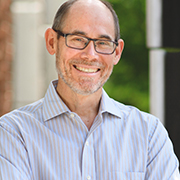
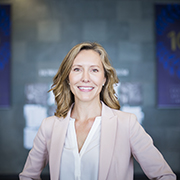
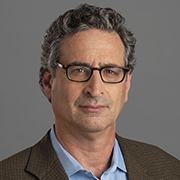
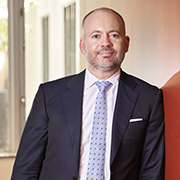
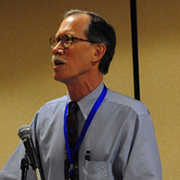

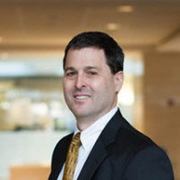
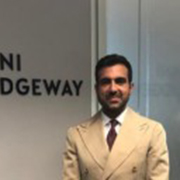
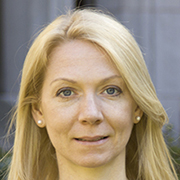
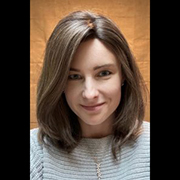
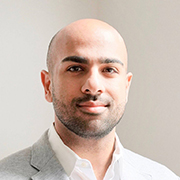
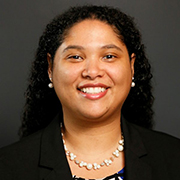
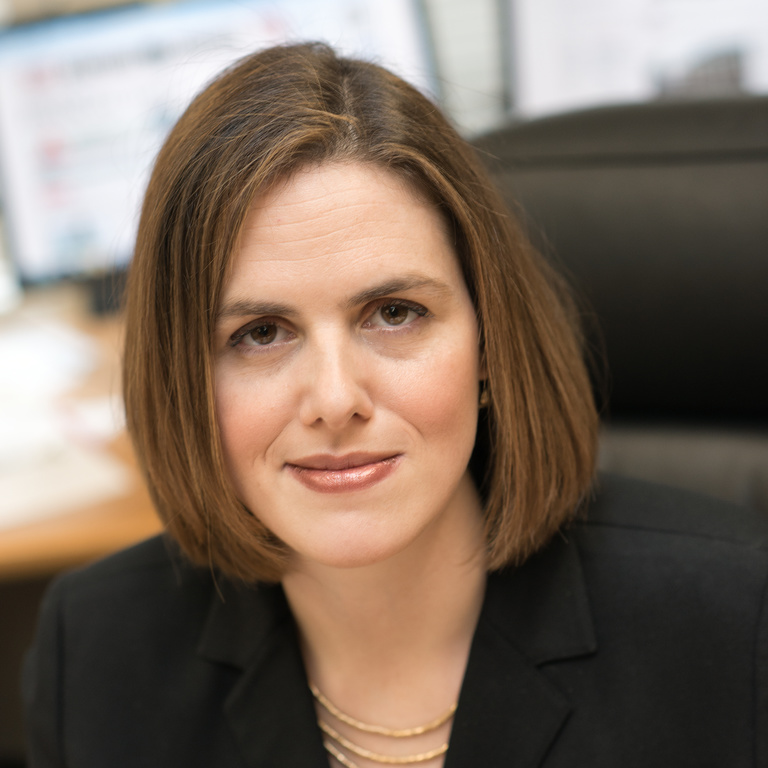
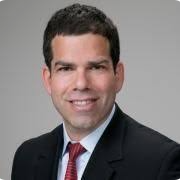
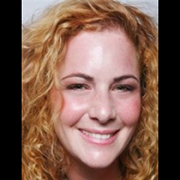

%20Rosen-Zvi.png)
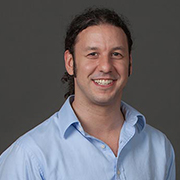
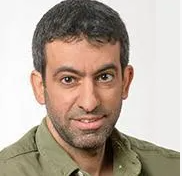

.jpg)
